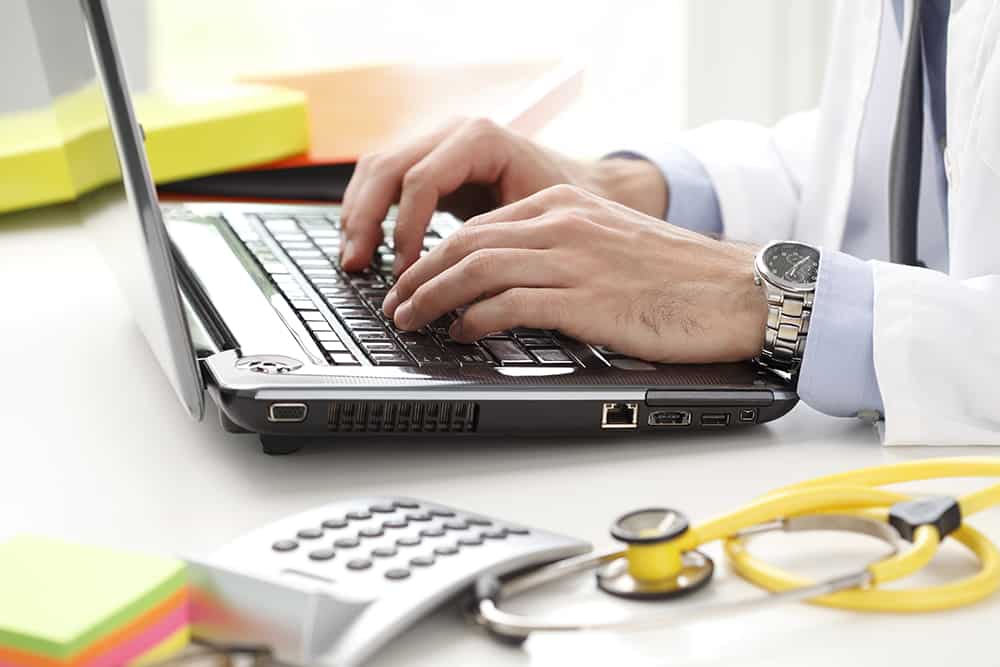Protecting confidential patient data
Sat 16 June 18
More than ever patients need the reassurance that their confidential information is kept safe and protected, and access is only made available to individuals as and when it’s appropriate.

A great deal of the work carried out by healthcare providers depends on trust. This is developed on the basis that medical professionals are able to look after their patients and the institution is capable of keeping confidential records safe. Hospital staff have serious pressure to ensure that they deliver an excellent level of care. Part of this responsibility is making sure that all patient information is kept up to date, stored correctly, and only shared with relevant personnel.
A number of stringent guidelines are in place to ensure that the correct patient information is linked to the patient. This could refer to a patient’s illness, diagnosis, treatments, allergies, blood types or medication. As so many different types of healthcare professionals are accessing central information, it’s vital that patients’ confidential data should be kept secure and that it cannot be accessed by non-authorised personnel. Although best practice guidelines make complete sense, it’s certainly not that simple to keep control of these processes. With regards to dictation security and data storage, even just looking at how each department individually stores patient information, there is a possibility of a discrepancy against how the data is supposed to be stored and shared.
A significant challenge for healthcare organizations is in making better use of technology. At the very top of every hospital and medical establishment’s agenda is keeping patients safe. From giving sound medical advice through to administering medication, it’s essential that staff have knowledge of their patients’ data. In order to put safety first, data must be collected and stored securely. With so many different solutions available on the market to secure data, cost is a key factor when considering which hardware and software are to be used. So the challenge is to find devices that keep confidential information thoroughly safe and also cost-effective at the same time.
Time can be a matter of life or death when it comes to patients’ treatment. Should a medical professional be required to treat a patient, they must have an up-to-date knowledge of a patient’s medical history. For healthcare staff recording information about a patient, devices need to be used that allow that information to digitally enter the systems as soon as possible. Gone are the days of a simple analogue tape recorder for registering notes, as it takes a long time for that information to be digitalized. Unfortunately, with some healthcare providers still using low end entry-level recording devices that are not secured, this poses the risk of not only delays in data entering the system, but also dictation security being compromised by unauthorised personnel being able to access a patient’s confidential information.
When it comes to digital voice recorders with the highest dictation security features, the Philips PocketMemo 8000 series delivers high end data encryption and crystal-clear recording. The voice files are encrypted in real time using the Advanced Encryption Standard (AES) with a key length of 256 bits. The device itself can be assigned a PIN code to protect against unauthorised use or file playback. Patient data can be scanned through an integrated barcode and linked to a recording. This ensures reliable assignment of patient IDs and speeds up data digitalization workflow. If a recording device is linked to a PC, it opens up possibilities of data being misused – this is where the PocketMemo 8000 enables central management by IT. The technology allows identification of the device, user, and serial number automatically; preventing the recorder from being used where it shouldn’t. The device’s unique Mass Storage Protection feature prevents other data being put on the recorder and moved off-site or outside of the dictation workflow. The devices can be administered remotely, so users, licenses, system settings and firmware can be centrally managed.
Categories / Tags
Book a one-to-one consultation with one of our specialists to see how SpeechWrite can add value to your organisation.

Book a one-to-one consultation with one of our specialists to see how SpeechWrite can add value to your organisation.
Close